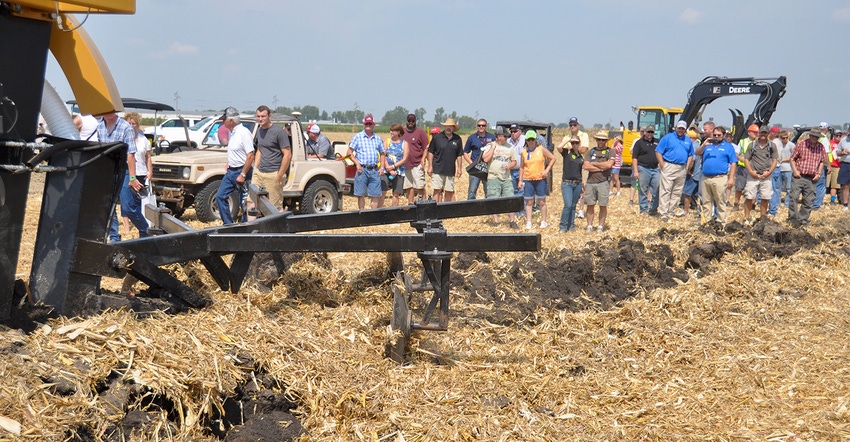
The no. 1 thing people say they learn from yield maps is that tile drainage pays. The yield monitor captures the effects of poor drainage, which extend much farther than just the wet spot.
If you’re convinced you need pattern tile installed in more fields, check out the tiling demonstrations at the 2017 Farm Progress Show, Aug. 29-31 in Decatur, Ill. You’ll get a chance to see tile installed and ask questions. Plans call for tiling 32 acres in a pattern-tile system and also constructing a bioreactor.
Matt Jungmann, Farm Progress director of trade shows, says tiling demos have become popular since so many people have an interest in the practice.
Jon Seevers, a board member for the Illinois Land Improvement Contractors Association, says members will bring their equipment and install the tile. Seevers and his family operate Seevers Farm Drainage Inc. near Argenta, Ill.
Seevers says the contractors will install mains to handle water from the laterals. The laterals will consist of 4-inch tile at a consistent spacing across the field.
Both trenchers and self-contained tile plows will operate in the demonstrations. The largest tiling machine slated to participate weighs 85,000 pounds and is equipped with tracks.
You’ll see how accurate these machines can lay tile, using RTK and other precision-assisted tools.
Since the large tiling equipment can cover a lot of ground in a short time, Jungmann says the demos will be scheduled for an hour each day, all three days of the show, weather permitting. They are slated for noon to 1 p.m. CDT. Check the field demonstration map for exact location.
Bioreactor installation
One of the top 10 strategies to reduce nutrient runoff, according to an Illinois study, is installing bioreactors to help capture nitrogen and prevent it from reaching waterways. A bioreactor is typically a large pit filled with various organic materials, such as wood chips or corncobs.
You can see a bioreactor under construction within the tiling site at the Farm Progress Show and learn more about possible benefits, Seevers says. Some of the work on the bioreactor will begin before the show starts.
Once the bioreactor is finished, water will enter the bioreactor before leaving the field on its way to the nearest stream. Nitrogen absorbed by the material in the reactor will stay behind.
About the Author(s)
You May Also Like




